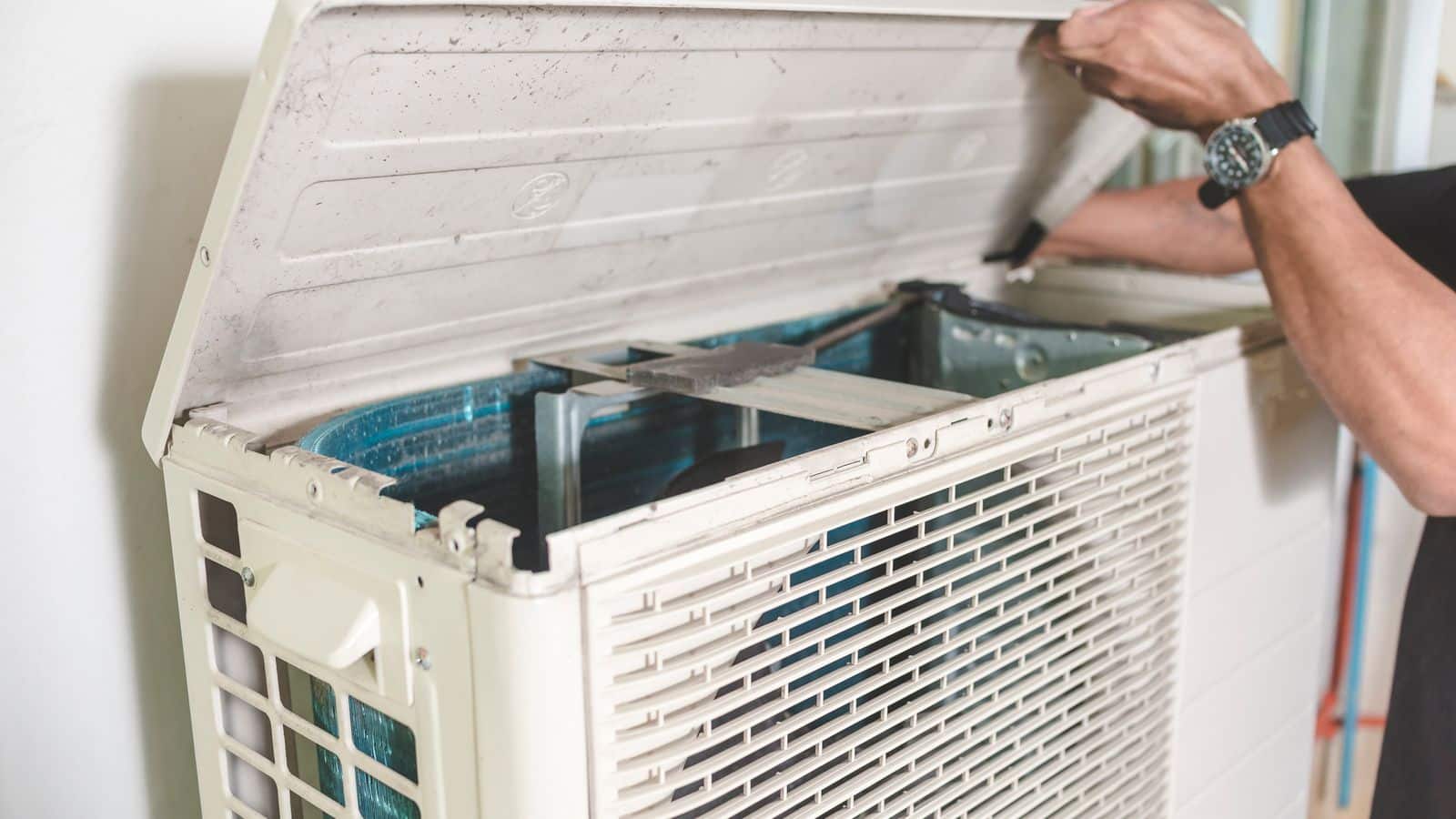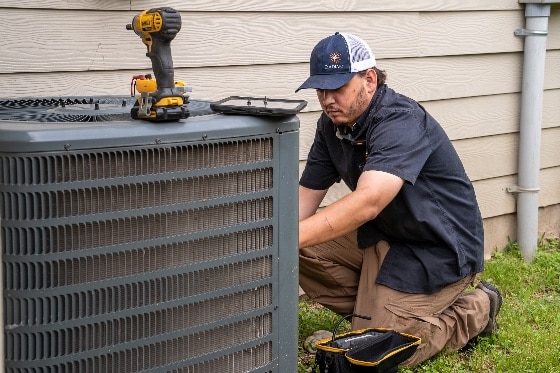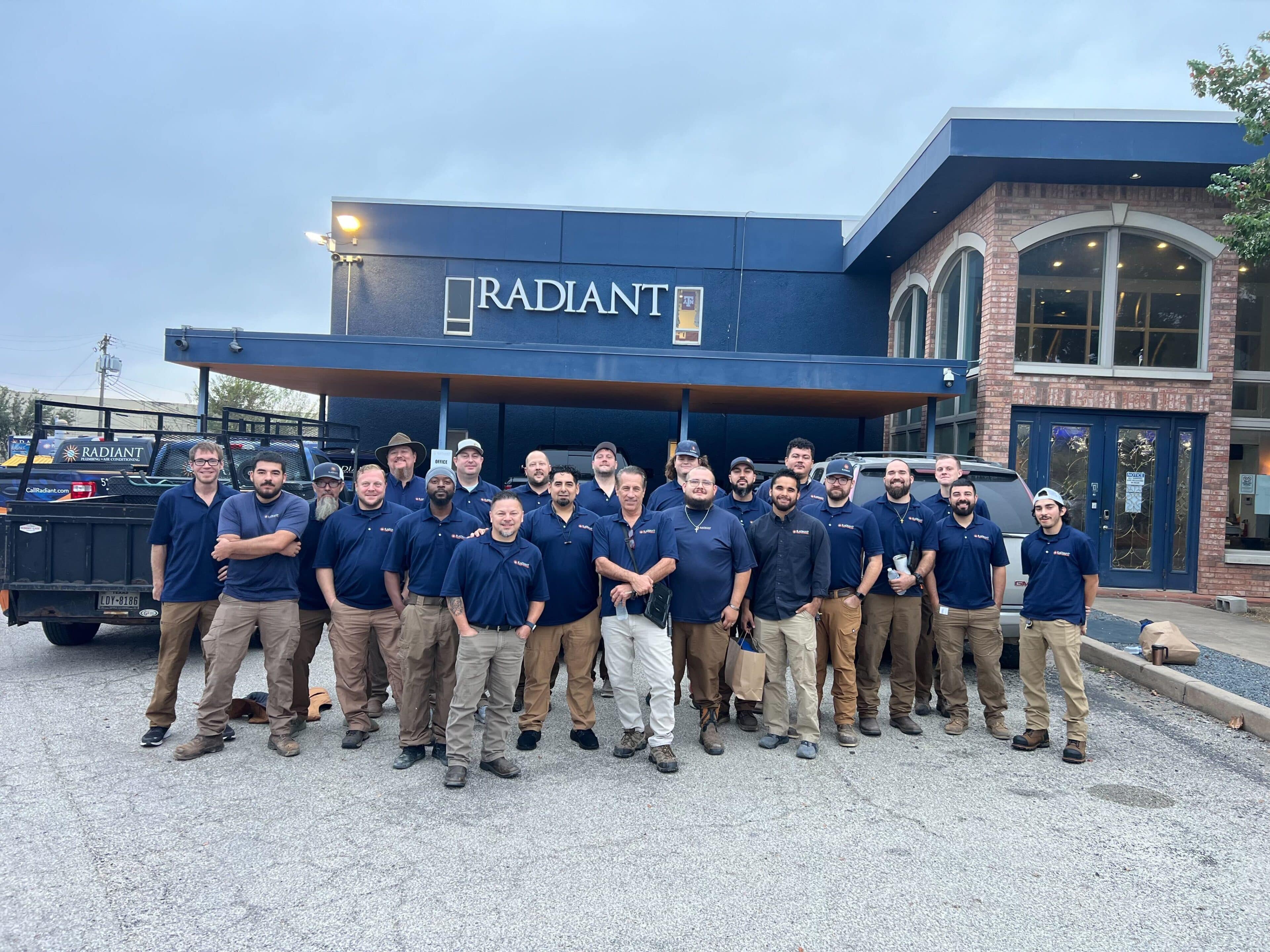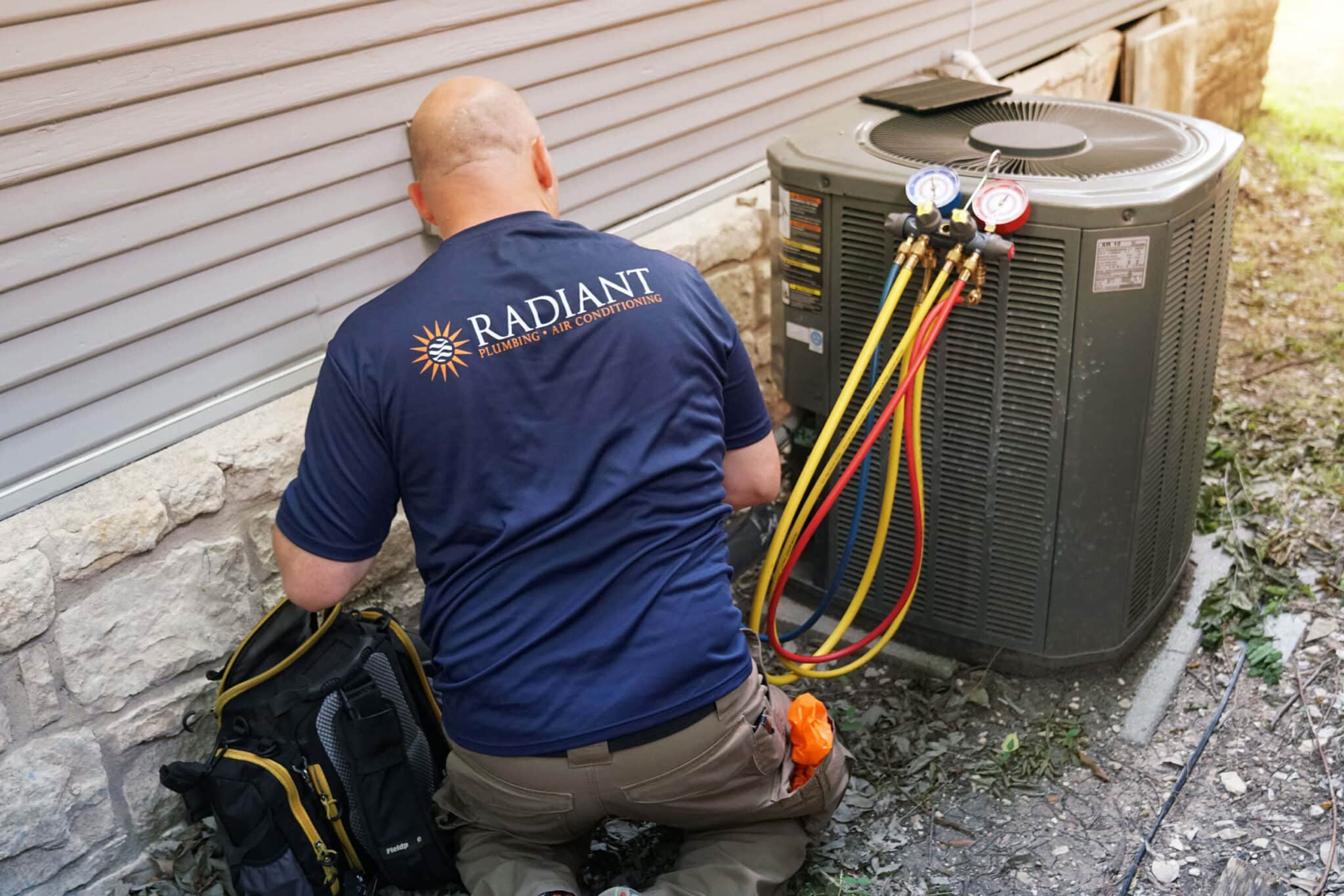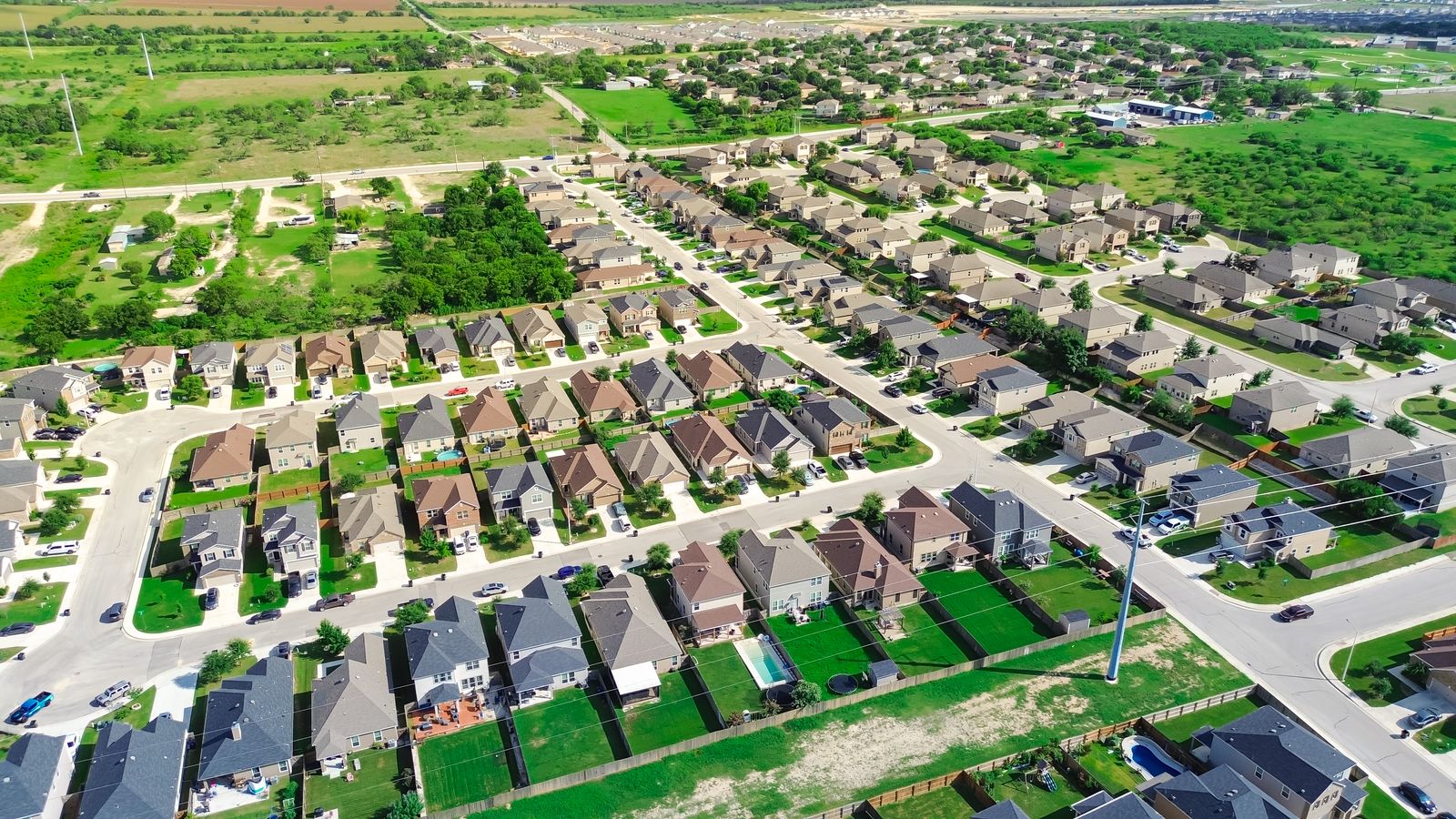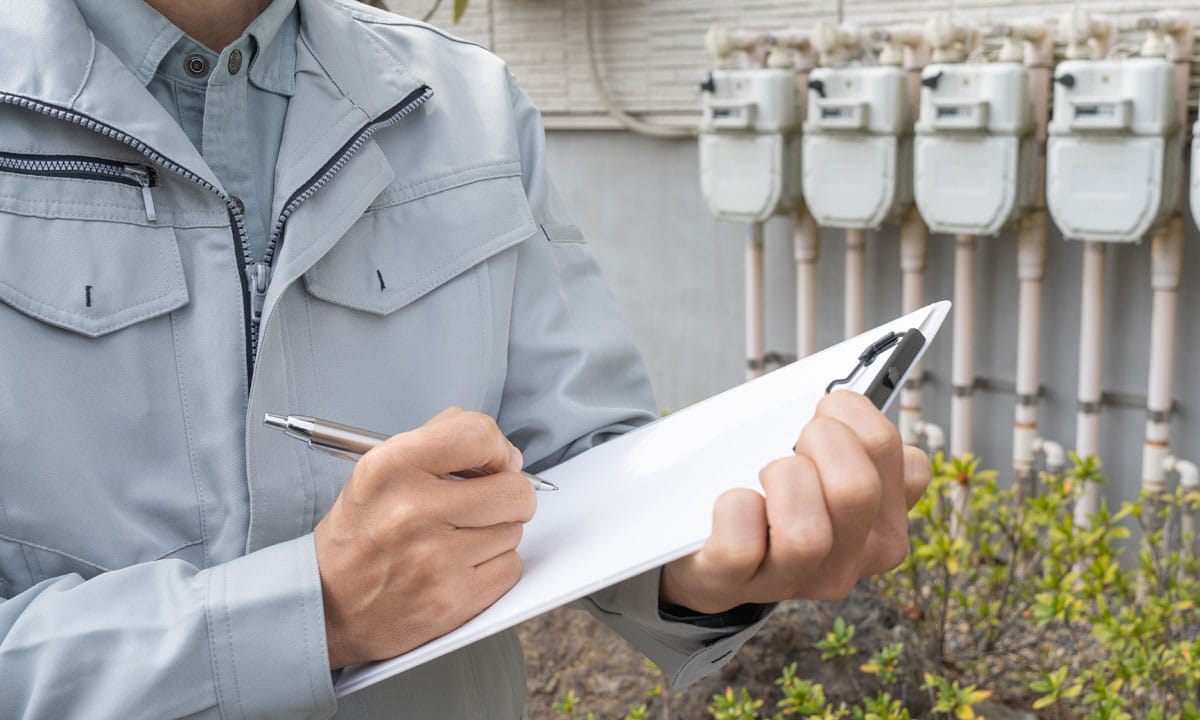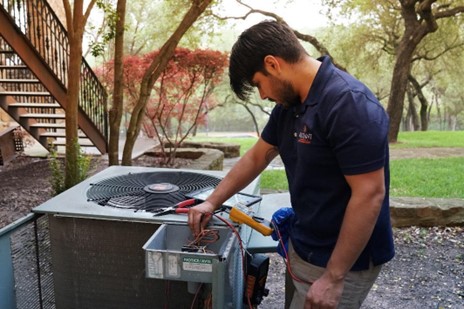In Austin, San Antonio, and across Central Texas, the heat doesn’t mess around—and neither should your home’s cooling system. With rising temperatures and energy costs, choosing between a heat pump and a traditional air conditioner isn’t just about staying cool—it’s about making a smart investment in your home.
Understanding how each system works and which one fits your needs can help you keep your home comfortable while keeping energy bills in check. Let’s break it down.
How Do Heat Pumps Work?
A heat pump heats and cools your home by moving heat rather than generating it. In summer, it removes heat from inside and pushes it outside, just like an air conditioner. In winter, it reverses the process, pulling warmth from the air to heat your home.
This energy-efficient design makes heat pumps a great fit for Texas’ mild winters, reducing energy use and lowering utility bills year-round.
How Do Traditional Air Conditioners Work?
A traditional AC unit cools your home by pulling heat from indoors and releasing it outside. This process relies on refrigerant cycles and air circulation to bring down indoor temperatures. While highly effective at cooling, it requires a separate heating system—like a furnace or electric heater—to keep your home warm in winter.
Maintaining two systems often means higher energy costs and added maintenance throughout the year.
Upfront Costs: Investment Comparison
The initial cost of a heat pump or a traditional AC system depends on factors like equipment, installation, and home size.
- Initial Costs of Heat Pumps: A heat pump generally costs more upfront because of its advanced technology and dual-function design. However, this extra expense often balances out through energy savings and the elimination of a separate heating system.
- Initial Costs of Traditional AC Units: A traditional AC unit usually comes with a lower initial price tag. But since a heating system is still required, homeowners must consider the cost of buying and maintaining both.
In many cases, purchasing an air conditioner along with a furnace ends up costing as much as—or even more than—a heat pump. Comparing the full price of installation and operation helps determine the best long-term value.
Energy Efficiency and Long-Term Savings
Energy efficiency plays a major role in keeping costs down over time.
- Efficiency of Heat Pumps: Heat pumps use less energy than traditional AC units because they transfer heat instead of producing it. This method lowers utility bills and reduces energy consumption. In moderate climates, homeowners can save hundreds of dollars per year compared to those using fuel oil, propane, or electric resistance heating.
- Efficiency of Traditional AC Units: While traditional AC units cool efficiently, pairing them with a separate heating system often leads to higher energy use. Furnaces and electric heaters generate heat rather than transfer it, which requires more energy and increases utility costs.
Since a heat pump provides both heating and cooling, it reduces energy use year-round, leading to lower expenses in the long run.
Operating Costs: Which System Costs Less Over Time?
Ongoing energy costs determine whether the initial investment pays off over time.
- Heat Pumps and Energy Bills: A heat pump requires a higher upfront cost but lowers monthly energy bills. Since it handles both heating and cooling, homeowners avoid the added cost of running a separate heating system.
- Traditional AC Units and Energy Bills: A traditional AC unit affects only summer cooling costs. In winter, homeowners rely on gas or electric heating, which adds to overall expenses. Running two systems often results in higher long-term energy costs compared to using a heat pump.
For those looking to cut energy bills throughout the year, a heat pump often provides the most savings.
Lifespan and Maintenance Considerations
Both heat pumps and traditional AC units need regular maintenance, but their lifespans differ.
- Durability of Heat Pumps: A heat pump usually lasts 10 to 15 years, partly because it runs year-round. Since it works in both summer and winter, wear and tear build up faster than with a seasonal AC unit.
- Durability of Traditional AC Units: A traditional AC unit typically lasts 15 to 20 years because it only operates during hot months. With a separate heating system taking over in winter, an AC unit experiences less strain.
Regular maintenance extends the lifespan of both systems, but homeowners should factor in long-term durability when deciding which option suits them best.
Environmental Impact and Health Benefits
Energy efficiency affects both environmental impact and indoor air quality.
- Heat Pumps and Environmental Advantages: A heat pump cuts down on carbon emissions because it eliminates the need for gas heating. Since no combustion is involved, it produces no indoor carbon monoxide, improving air quality and safety.
- Traditional AC Units and Environmental Considerations: A traditional AC unit uses more electricity than a heat pump and works alongside a heating system that may burn fossil fuels. This leads to higher carbon emissions and increased energy consumption.
For those who want to lower environmental impact, a heat pump provides a cleaner, more sustainable option.
Financial Incentives and Tax Credits
Government programs and rebates help make energy-efficient systems more affordable.
- Available Rebates for Heat Pump Installation: Many homeowners qualify for financial incentives when installing a heat pump. The 25C tax credit offers a 30% rebate on installation costs, up to $2,000. Local energy providers may also offer rebates for upgrading to an energy-efficient system. Checking with a tax professional helps ensure eligibility for available rebates.
- Limited Incentives for Traditional AC Units: Traditional AC units usually don’t qualify for major rebates or tax credits. Since they don’t improve heating efficiency, they lack the same financial incentives as heat pumps.
These rebates can make a heat pump more affordable in the long run, especially when combined with energy savings.
Making the Right Choice for Your Home
Several factors influence whether a heat pump or a traditional AC system is the best fit.
- Assessing Climate Suitability: A heat pump works best in moderate climates like Central Texas. Homes in colder regions may need a hybrid system that includes both a heat pump and a furnace.
- Considering Long-Term Savings Over Initial Costs: A heat pump may cost more upfront, but lower energy bills and available incentives make it a smart investment. Homeowners focused on immediate savings might lean toward a traditional AC unit, but long-term expenses should be taken into account.
Just Call Radiant
Not sure which system is right for your home? We’ve got you covered. At Radiant Plumbing & Air Conditioning, we make the decision easy with:
- Professional Assessments – Our experts evaluate your home’s needs and recommend the best system for efficiency and savings.
- Expert Installation & Maintenance – Precision installation and ongoing care to keep your system running at peak performance.
- 24/7 Reliable Service – Whether it’s a new install or an unexpected issue, we’re always here to help—day or night.
Schedule an appointment with Radiant today to explore your options and keep your home comfortable all year long.

